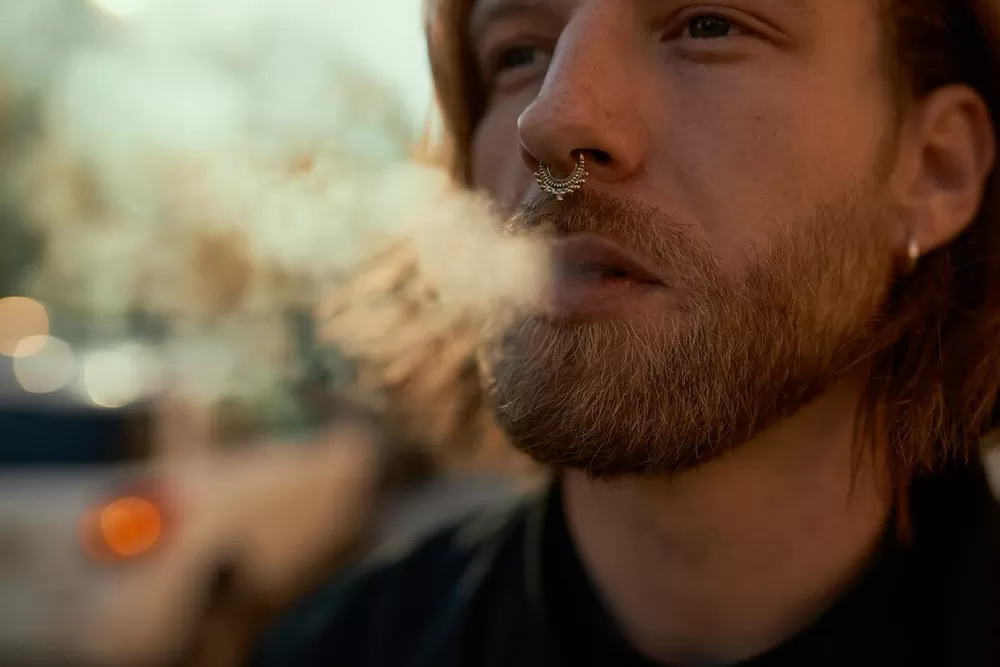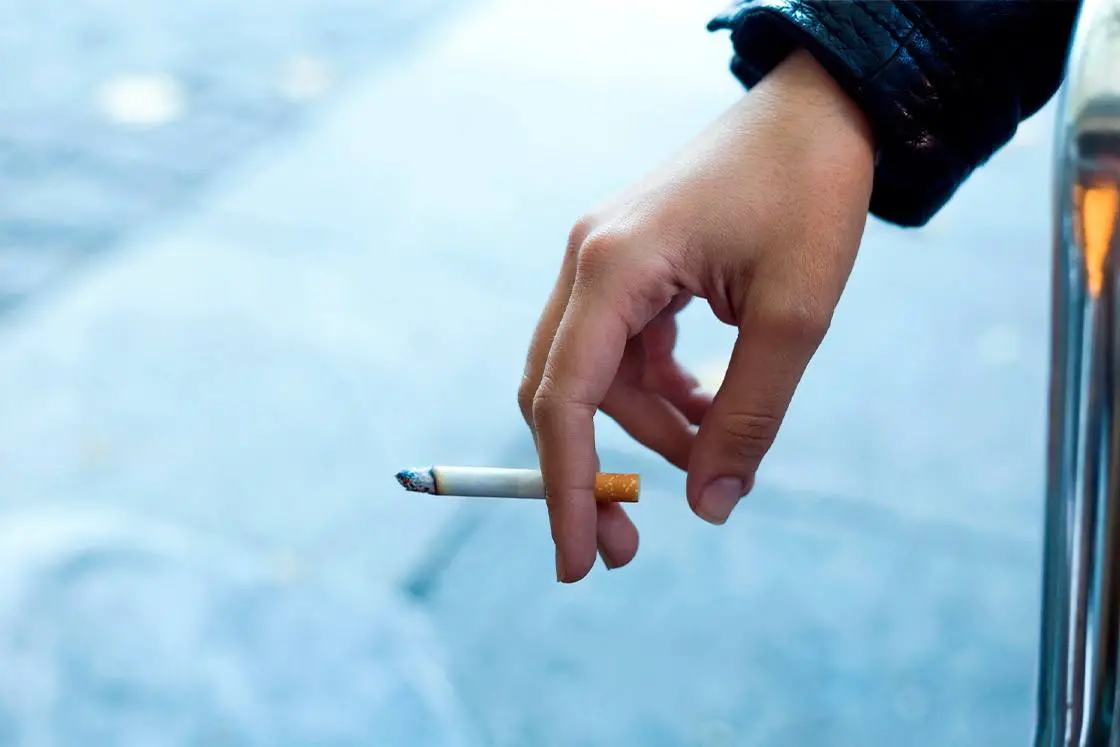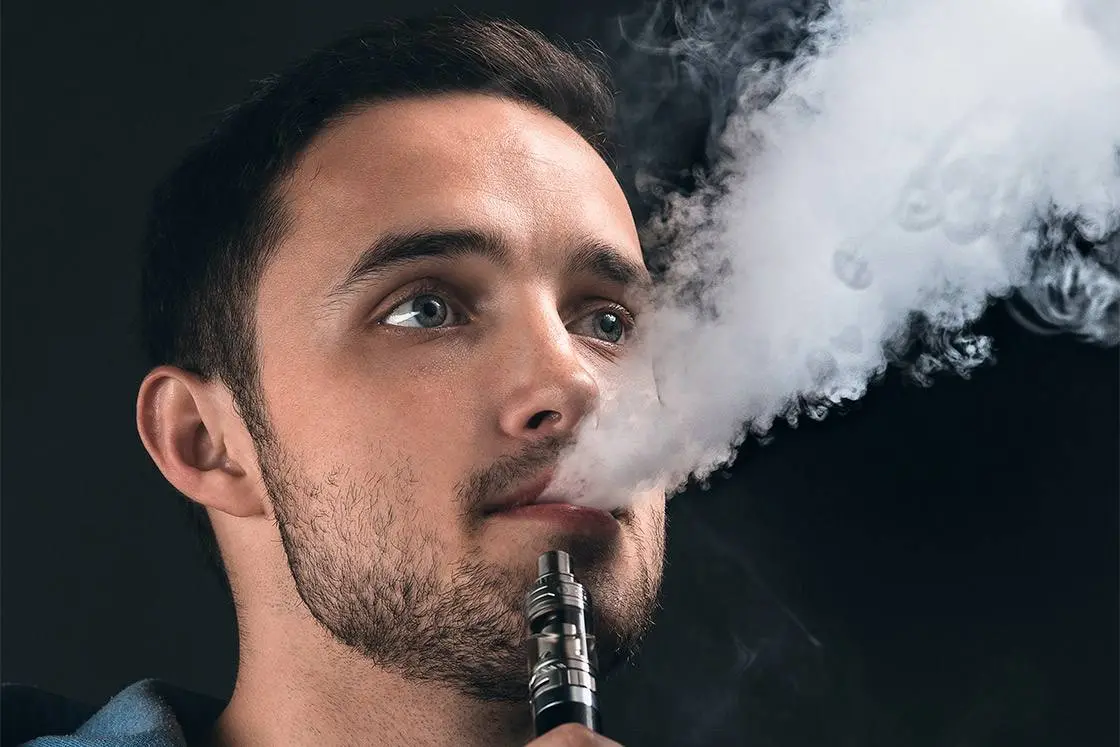The health damage caused by smoking is more than known: respiratory diseases, heart disease, cancer, periodontal diseases, premature aging, among others. However, many smokers are unaware that tobacco use can also affect the appearance and health of their hair.
Quitting tobacco is one of the best decisions you can make, and today on the Hairfix blog we will tell you how smoking affects hair health and its relationship with alopecia. Stay and read!
Tabla de Contenidos
Does smoking damage hair?
Is there really a risk of hair loss from smoking? The harmful potential of smoking has implications for various aspects of health, and hair health is no exception.
How does smoking cause hair loss?
There is a direct relationship between smoking and hair loss. One of the main reasons is that smoking increases the production of free radicals in the body, which cause oxidative stress and can damage the DNA of cells. This increase in free radicals is exacerbated by factors such as pollution, radiation and UV exposure.
As a result, people who smoke tend to have lower hair density and the baldness process is accelerated.
Blood circulation
Smoking is the main cause of cardiovascular disease (CVD), as well as one in four associated deaths. This is because it causes the blood to thicken, thrombi or clots to form, and block blood flow to the heart and brain. In addition, blood vessels are affected by the accumulation of fat, cholesterol and toxic substances from cigarettes that harden and widen them.
The inadequate supply of oxygen through blood circulation damages the blood vessels of the hair bulb, that is, the base of the pillar follicles that receive the nutrients and hormones that modify the growth and structure of the hair.
Without these nutrients, the hair growth cycle is affected, so it can appear dry, brittle and prone to loss.
Furthermore, this situation not only affects active smokers, but also passive smokers who receive cigarette smoke can have the same consequences on their hair health.
Androgenic alopecia and smoking
In previous posts we have told you about androgenic alopecia, which is a genetic predisposition to male pattern hair loss. While this is a “natural” condition, smoking can exacerbate or accelerate the process.
A recent study published January 4, 2024 in the Journal of Cosmetic Dermatology led by Dr. Aditya K. Gupta, of Mediprobe Research Inc. (London, Ontario, Canada) and the University of Toronto Faculty of Medicine ( Toronto, Ontario, Canada), revealed that male smokers are more likely to develop androgenic alopecia and experience accelerated progression of male pattern hair loss.
In a meta-analysis with 4,462 men from eight observational studies in Europe, Asia and Oceania, the probability of presenting male pattern hair loss was compared among smokers who consumed at least 10 cigarettes per day, finding a 96% greater probability of presenting androgenic alopecia. than others who smoked less.
Increased DHT production
Smoking can cause an increase in the production of DHT, dihydrotestosterone: a derivative of testosterone and is responsible for men developing masculine traits, including sexual organs and hair growth on different parts of the body, such as arms and legs. However, this same role plays against hair loss since DHT affects the hair growth cycle.
DHT can inhibit and shrink hair follicles, reduce the duration of the hair growth phase (anagen) and increase the duration of the hair loss phase (telogen). The result is thinning hair with each hair cycle.
Is hair loss caused by smoking reversible?
Quitting smoking is always a good idea, as after a few days you will start to see the benefits to your general health. In terms of hair health, quitting smoking reduces free radicals and toxins in the body, estrogen levels normalize and cardiovascular health improves, so the causes of hair loss can be stopped.
This means that hair loss due to smoking is reversible, although the results depend on age, existing conditions and diseases.
If I stop smoking, will my hair grow back?
When you stop smoking, the body begins to recover: blood flow is gradually restored, hair follicles are nourished again, toxins stop accumulating in the hair making it fragile and brittle. All this contributes to the regrowth of weak and brittle hair, regaining its strength and shine.
However, you should keep in mind that although quitting smoking is a fundamental step to improve your overall health, it is not a guarantee that your hair will grow back, as factors such as age, genetic predisposition, nutrition and conditions such as androgenic alopecia.
Can vaping cause hair loss?
If you are contemplating the idea of vaping as an alternative to quit smoking, we have bad news for you: vaping is almost as harmful as smoking. For one thing, vape liquids contain nicotine, which constricts blood vessels in the scalp in a way similar to smoking.
On the other hand, the more than 7000 chemicals present in vapes alter the hormonal balance and affect the hair follicles by not allowing them to receive the necessary nutrients for the hair.
If you stop vaping and smoking, your follicles will begin to repair after a few months, and you may see better results if you put yourself in the hands of hair health experts like Hairfix for a shinier, fuller mane.
What are the treatments for hair loss due to smoking?
As we mentioned, just quitting smoking is not a guarantee of recovering your mane. Fortunately, there are treatments that can help you improve the density and thickness of your hair:
– Hair mesotherapy. Mesotherapy is a treatment that stimulates the hair and nourishes it from the root to give it strength, increase its volume and help it grow.
– Hair transplant. Grafting with techniques such as FUE/DHI is the best alternative to recover hair density in the areas most affected by alopecia.
Can smoking affect the results of hair transplants?
If you are considering a hair transplant and you are a smoker, you should know that, as we already mentioned, smoking causes vasoconstriction of the capillary vessels in the scalp, preventing the arrival of nutrients to the transplanted follicular units.
On the other hand, nicotine and more than seven thousand toxic substances can reduce tissue oxygenation, reducing their healing capacity. For this reason, cigarette smoking should be avoided before and after any medical intervention, including hair transplants.
In general, we recommend that you stop smoking at least two weeks before and two weeks after the transplant, and it is important not to cheat since consuming just two cigarettes a day reduces peripheral circulation between 9% and 55%.
Your hair transplant may be the reason to quit smoking permanently and improve your general health and the health of your hair in particular, as you will see an improvement in the shine, growth and appearance of your hair as your body detoxifies from nicotine.
Schedule your appointment at Hairfix
We hope that this information is useful to you and helps you be more aware of the importance of quitting smoking, not only for the appearance of your hair, but for your general health. If you are looking for a definitive solution to alopecia, schedule your appointment at Hairfix where we have hair transplant specialists.
Request more information about mesotherapy hair price, hair implants Mexico and schedule your appointment at (664) 454 0187 and (858) 867 4060 or write to us by WhatsApp at (554) 502 7527 or at info@hairfixmexico.com. We will gladly assist you. Ask us about hair transplant price in Mexico, beard transplant cost and more.









